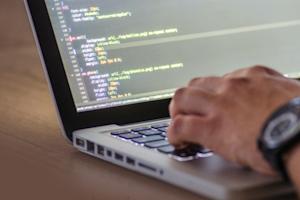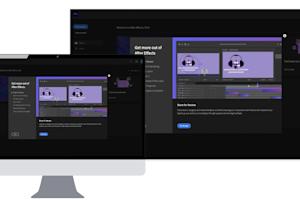Splashtop surveyed more than 1,000 university students throughout the U.S. and the UK, and the findings point to an ongoing shift in learning preferences. Read on for key findings and an infographic summarizing the results.
When it comes to learning, today’s students expect full flexibility. They believe a key factor in their academic success is the ability to access on-campus resources in their own time.
Like many other sectors, the pandemic sparked a necessary movement toward a more modern and flexible approach to education. Now universities are enabling students to be more in control of their time and resources while providing more opportunities for them to balance their personal lives and studies.
At the beginning of the academic year, Splashtop surveyed more than 1,000 university students throughout the U.S. and the UK, and the findings point to an ongoing shift in the way they prefer to learn.
The new generation of university students expect technology to help them learn more efficiently and effectively—wherever they are
For an optimal learning experience, students prefer a blend of in-person and remote access to education resources, particularly lab computers.
They still value and want face time with their instructors and peers in the classroom, but the possibility to learn remotely and have full access to all on-campus resources is non-negotiable. In fact, 46% of students still feel they learn best on-campus, while 38% prefer a mix of online and in-person classes. On the other hand, 84% of students believe having remote access to computer labs improves their performance.
In addition to that, more than 60% state they would consider switching to a different institution if their current one would not provide them with distance learning options.
Students have several primary motivations for wanting distance learning programs. The ability to manage classes and projects according to their schedules, as well as the ability to combine studies with work to cut costs related to commutes and accommodation were the top reported motivations.
University students want to use their own devices to utilize on-campus resources and expect their school’s IT team to support them
Today’s digital native students increasingly expect their education experience to mirror their lifestyle outside of school, with seamless access to the information they need from their own devices.
Our research found they use an average of 1.8 devices per person, which include a mix of laptops, smartphones, desktops, tablets, and Chromebooks. Students have come to expect resources and software to run seamlessly across all platforms, devices and operating systems.
Overwhelmingly, students also expect their university to provide the IT support they need. More than 90% of respondents said they expect their university to provide technical support when they experience issues. Remote IT support is increasingly valuable to universities that want to create more dynamic digital experiences.
“The attended support feature has been wonderful; when we need to get into a client’s device, we can have them go to the Splashtop website, download the application, and we’re in.” – Edward O’Dell, IT Support Specialist at Virginia Tech
Bridging the gap by providing access to on-campus computer labs from any device, anywhere
Remote access technology is an equalizer that grants all students the opportunity to learn from the devices they have available.
Splashtop supports Windows, Mac, IOS, Android, and Chromebook—providing students from all socioeconomic backgrounds access to powerful applications and technology. This flexibility helps promote equity and inclusion for students with disabilities or mobility challenges as well as students who are juggling work, school, and personal schedules.
“Luckily Splashtop supports Chromebooks since the school has been lending out Chromebooks to students who don’t have computers or can’t afford them. So that feature was really nice!” Chris Gilbert, Application Technical Analyst at Wayne State University
Trusted by universities around the world
With Splashtop’s remote access and support technology, students and faculty can collaborate from any device, anywhere. Universities around the world—including the University of California, Los Angeles, University of Westminster, London, Duke University, University of Nottingham, University of the Arts London, and Virginia Tech—rely on Splashtop to power their remote learning experience.




